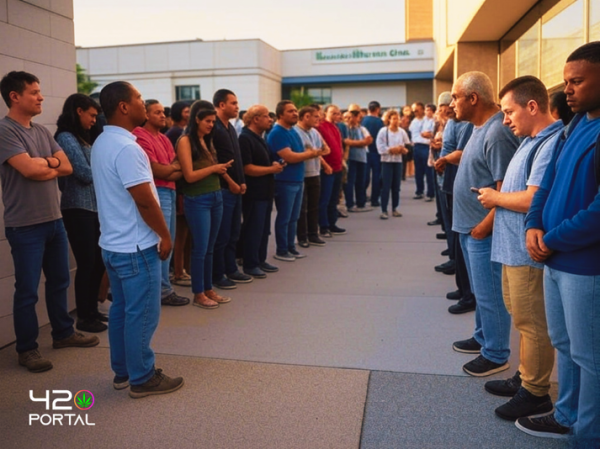Utah’s Medical Cannabis Program Surpasses 80,000 Cardholders, Driving Economic and Health Impacts

04/25/2025
Utah’s medical cannabis program has reached a significant milestone, with over 80,000 active cardholders, reflecting growing acceptance and demand since its launch in 2020. The state’s regulated market generated $138 million in sales last year, underscoring the program’s economic impact and its role in providing alternative treatment options for patients.
Most cardholders seek relief from chronic pain, though qualifying conditions also include epilepsy, multiple sclerosis, anxiety, and PTSD, among others. The program’s high testing standards ensure product safety and consistency, giving patients confidence in what they purchase from licensed pharmacies.
Despite its success, the program faces challenges. The process to obtain a medical cannabis card can be cumbersome and costly, with appointments ranging from $100 to over $200, plus state fees. Some providers, like The Flower Shop in South Ogden, have introduced pop-up clinics to streamline access, connecting patients with licensed medical providers for evaluations. However, over 40,000 cardholders have let their cards lapse since the program began, likely due to high costs, limited providers, and competition from unregulated markets. The state has worked to improve access by expanding its limited medical provider program, allowing doctors to recommend cannabis to up to 15 patients, and offering telehealth renewals for convenience.
Utah’s medical cannabis industry also supports research into its efficacy. Data from local pharmacies, like Dragonfly Wellness, suggests that medical cannabis may reduce opioid prescriptions and related mortality, aligning with trends observed in other states with similar programs. Legislative improvements have further strengthened the program, including employment protections for patients, home delivery options, and access for acute pain and terminal conditions.
While recreational marijuana remains illegal, a recent poll showed 52% of Utah voters support full legalization, hinting at potential future shifts. For now, the medical cannabis program continues to evolve, balancing patient needs with regulatory oversight in a state known for its conservative stance on substance use, offering a model for structured, patient-focused cannabis access.
Reference
Most cardholders seek relief from chronic pain, though qualifying conditions also include epilepsy, multiple sclerosis, anxiety, and PTSD, among others. The program’s high testing standards ensure product safety and consistency, giving patients confidence in what they purchase from licensed pharmacies.
Despite its success, the program faces challenges. The process to obtain a medical cannabis card can be cumbersome and costly, with appointments ranging from $100 to over $200, plus state fees. Some providers, like The Flower Shop in South Ogden, have introduced pop-up clinics to streamline access, connecting patients with licensed medical providers for evaluations. However, over 40,000 cardholders have let their cards lapse since the program began, likely due to high costs, limited providers, and competition from unregulated markets. The state has worked to improve access by expanding its limited medical provider program, allowing doctors to recommend cannabis to up to 15 patients, and offering telehealth renewals for convenience.
Utah’s medical cannabis industry also supports research into its efficacy. Data from local pharmacies, like Dragonfly Wellness, suggests that medical cannabis may reduce opioid prescriptions and related mortality, aligning with trends observed in other states with similar programs. Legislative improvements have further strengthened the program, including employment protections for patients, home delivery options, and access for acute pain and terminal conditions.
While recreational marijuana remains illegal, a recent poll showed 52% of Utah voters support full legalization, hinting at potential future shifts. For now, the medical cannabis program continues to evolve, balancing patient needs with regulatory oversight in a state known for its conservative stance on substance use, offering a model for structured, patient-focused cannabis access.
Reference







